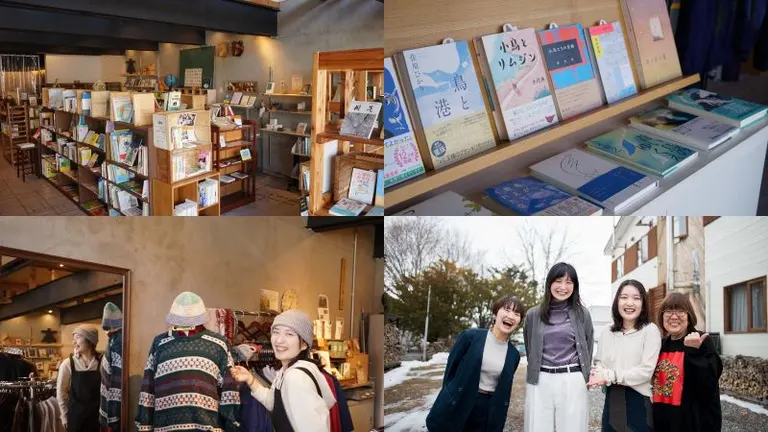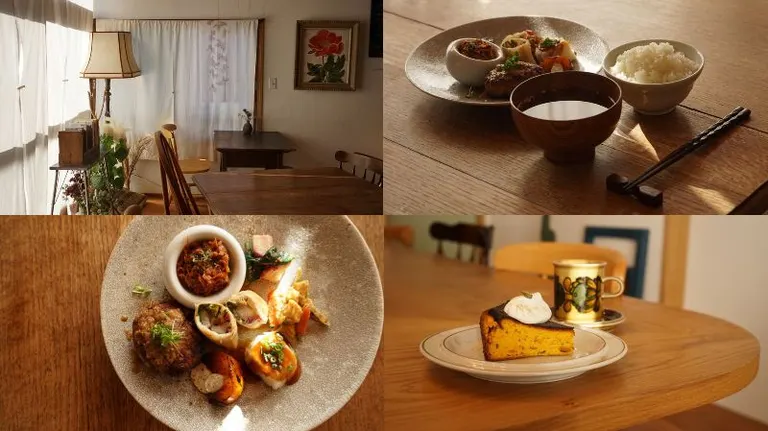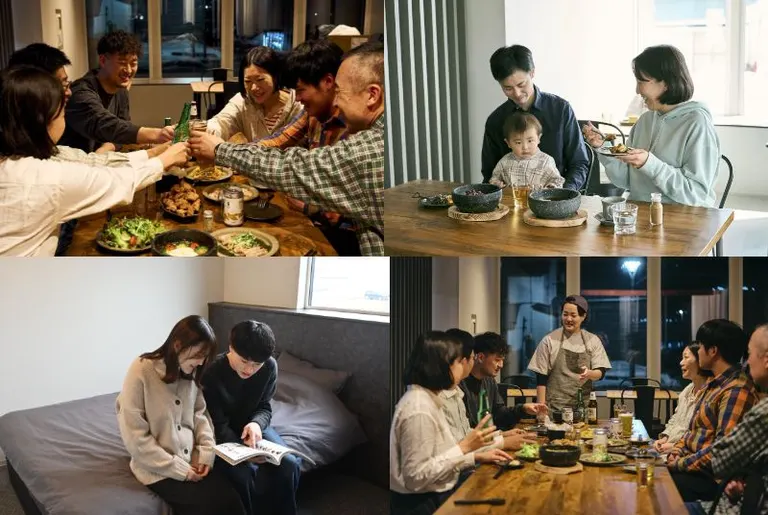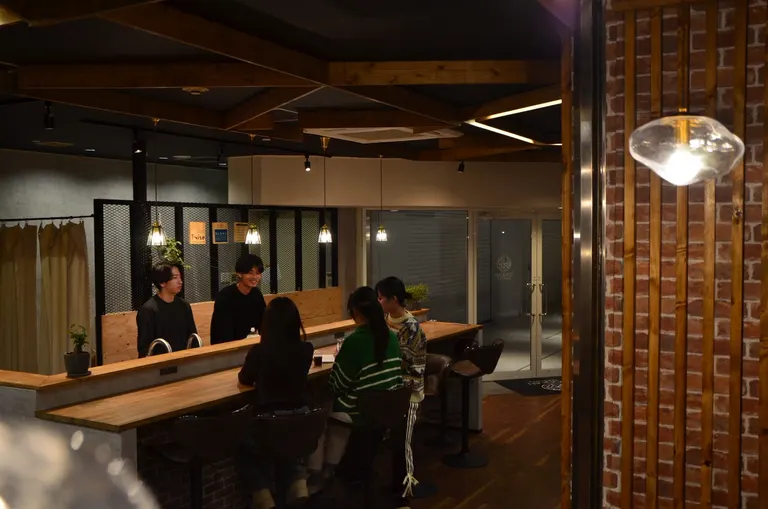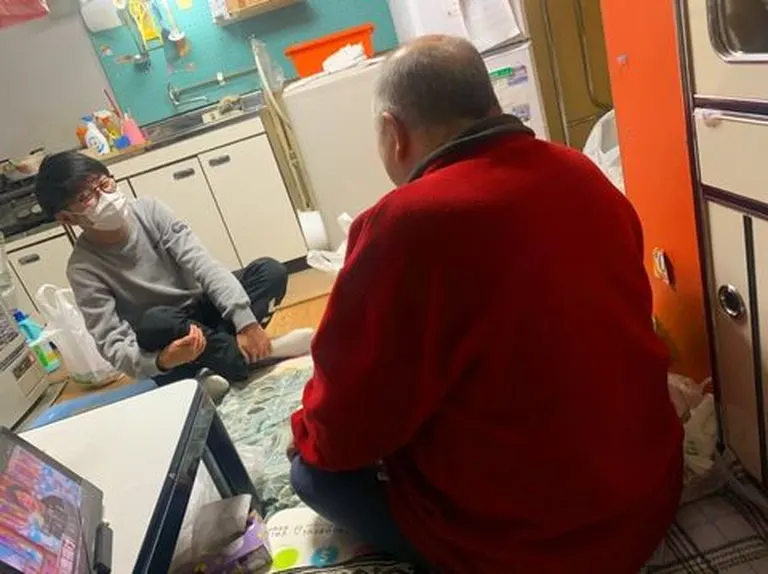
ARTICLES
Community, Welfare, and Youth Power: Tatsuru Washiya's Vision and Practice in Tobetsu Town
"I'm careful not to act like a supporter when I interact with the local residents."
Tatsuru Washiya is a fourth-year university student studying to become a physical therapist in Tobetsu Town while also tackling local welfare issues.
We spoke with him about his approach to connecting with locals, an approach that's possible precisely because it's not a job.
An Encounter with One Man
Mr. Washiya is from Akita Prefecture and came to Hokkaido for the first time for university. In high school, he was an active player on a competitive baseball team, while also planning practice menus and managing the team. Through this, he found fulfillment in supporting others and decided to pursue a career in medicine.
Since his high school days, Mr. Washiya had vaguely thought, "I want to make the community more interesting, I want to make it better." He held the same feelings not only for his hometown but also for Tobetsu Town, where his university is located.
"After enrolling in the physical therapy department, which specializes in rehabilitation, I tried to come up with my own ideas and take action to liven up the community. But for about a year, things didn't go well."
When Mr. Washiya was in his second year of university, a welfare professional in Tobetsu Town, who knew of his desire to be active in the community, introduced him to an elderly man.
This encounter would clarify Mr. Washiya's vision.
"The man I was introduced to had recently lost his wife, and since he had moved to the area, he had no connections in the community. He told me, 'There's not much fun in my days. There's no point in living with a smile.'
When I heard that, I was disappointed in myself. I had been saying I wanted to make the community more interesting, yet I couldn't even make the person right in front of me want to live a joyful life. At the same time, I began to question the medical profession, where you don't interact with the elderly as long as they are healthy."
Mr. Washiya wanted to explore the questions and frustrations that arose within him and wondered what he could do for the community and its residents. To find answers, he began to visit the elderly man's home frequently.
Through many visits and conversations, he gradually began to understand what the man wanted to do.
Wondering, "Couldn't we make his wishes come true together?" Mr. Washiya, along with other students from his university, put them into action one by one.
"Seeing him happy with our activities and building connections with the students who participated with me, I became convinced that even students can help create a sense of purpose for people in the community."
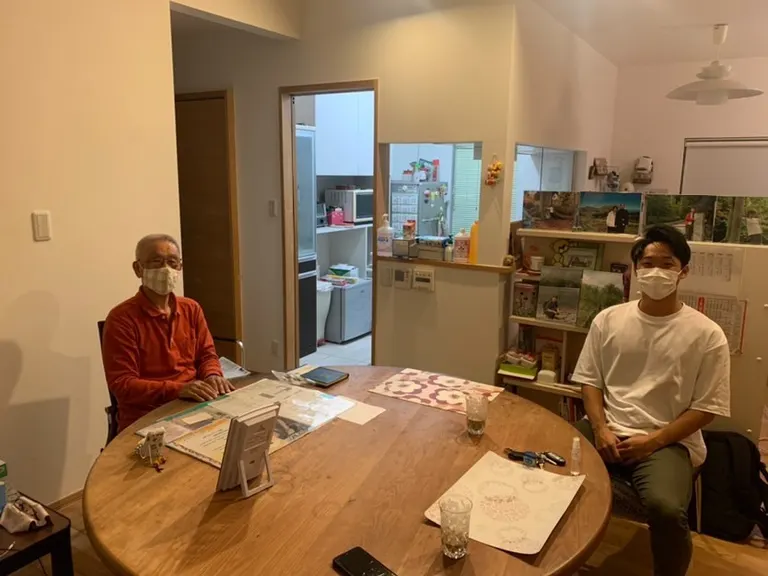
Mr. Washiya with the first man he met
Rethinking the Role of Healthcare Professionals Through a Student Club
Wanting to expand his activities, Mr. Washiya founded the student club "ONE" that fall.
The club's members, who had previously not been interested in community activities, were surprised by the gap between the knowledge gained in university lectures and hospital internships and the reality of the community.
"We were studying at university with the desire to help people who have been injured or become ill as rehabilitation professionals in a hospital. But when we went out into the community, we came face to face with grandmothers who couldn't find a purpose in life and grandfathers who disliked exercise and refused rehabilitation."
Mr. Washiya and the students thought, "We'll be the ones providing rehabilitation to these people in 5 or 10 years," and at the same time, it became an opportunity for them to think, "Is doing nothing for these people 'now' truly in their best interest?"
Through the club's activities, the students learn about the feelings and life stories of the people they support, and they feel a daily desire to be there for them.
"For example, even if a healthcare professional recommends moving into a facility, there's always a reason why an elderly person who can't live without support would refuse. When we actually visit their homes, they might tell us, 'I want to stay in my own home forever because it's full of memories with my family.' I believe the job of healthcare and welfare professionals is to understand that there are people with various feelings and to think about how to support them to the fullest."

A home visit activity
Connecting as a Person, Not a Supporter
Mr. Washiya shared his approach to building relationships with local people through the activities of the club "ONE".
"For about a year and a half now, my junior club members have been working with local elementary and middle school sports teams and clubs. For the first year or so, they held injury prevention classes, which weren't very successful. I thought that with a classroom-style approach, even if you suddenly teach kids about injuries, they'll forget it by the next day.
When I talked to the junior members involved, they said they had received similar instruction when they were kids, yet they still got injured and had to go through rehabilitation."
Hearing about his junior members' activities, Mr. Washiya related it to his own community work and they brainstormed a new approach together.
The activity they came up with was to exercise and play with the children.
By doing so, they shifted the dynamic from a teacher-student relationship to one of people interacting together. This allowed them to do exercises together and made the elementary school students want to imitate the university students, who they saw as cool for doing injury prevention.
"We are changing the traditional dynamic in rehabilitation and medicine of 'supporter' and 'user.' We value creating person-to-person connections within the community to prevent injuries and illnesses."
Mr. Washiya says he is also careful about "not acting like a supporter" when interacting with the elderly.
"There are quite a few elderly people who are stubborn with care managers or home helpers. When we visit their homes, welfare professionals sometimes tell us, 'This person can be a bit difficult, so be careful.' But because we're not 'supporters,' we can interact with them with the closeness of a friend or a grandchild, and I find that interesting. When I tell the welfare professionals about our fun conversations after a visit, they are absolutely astonished (laughs). It's a relationship where we can hear their real voices, including their complaints about care."
He says that in any activity, he is conscious of connecting with local people as a fellow human being.
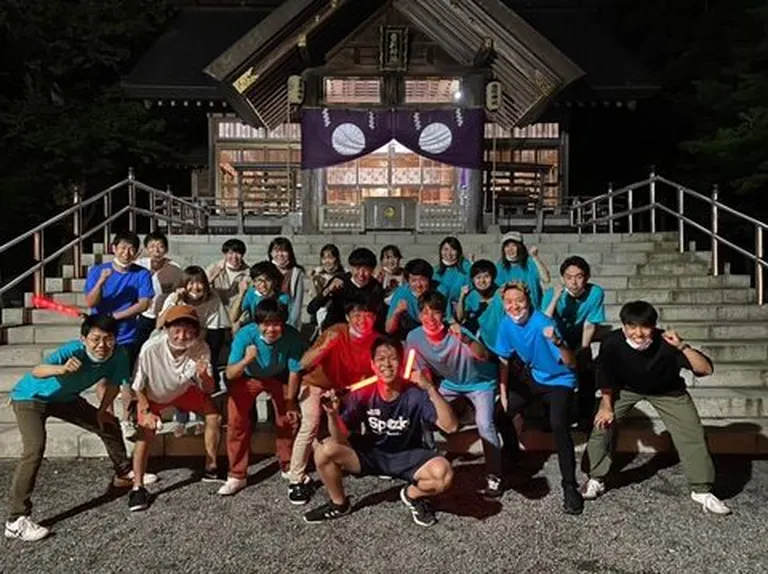
Members of the student club 'ONE'
A Desire to Build the Community
Mr. Washiya says he wants to continue to be involved in community building in the welfare field. He believes that community building means supporting not only those who need assistance but also the elderly who lack a sense of purpose.
"I believe that by enhancing welfare services and continuously engaging with local people on a daily basis, the number of people needing rehabilitation will ultimately decrease. I really want to work in a job related to welfare.
I have a desire to return to my hometown of Akita someday, but for now, I'm being supported by so many people in Tobetsu Town as a member of the community building effort. I want to do everything I can here in Tobetsu."
I felt the potential for community building with the power of youth, involving those around them. I look forward to seeing Mr. Washiya's future success as he enters the workforce.
Writer's Profile
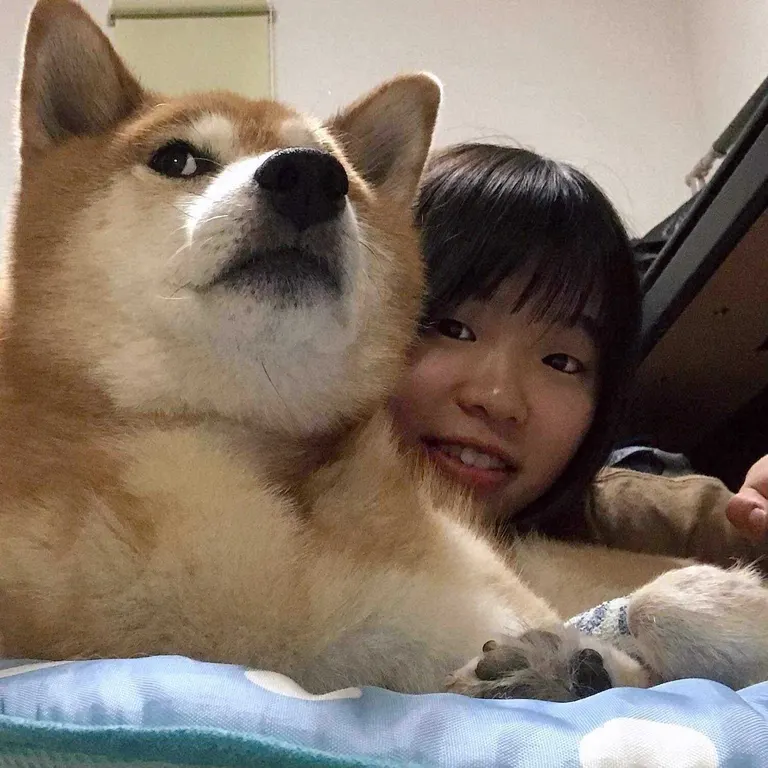 Kaede Shimanuki
Kaede Shimanuki
Born in 1999. Has lived in Kitahiroshima City since the age of four. Since 2018, she has been studying art-based regional revitalization at Hokkaido University of Education, Iwamizawa Campus.






